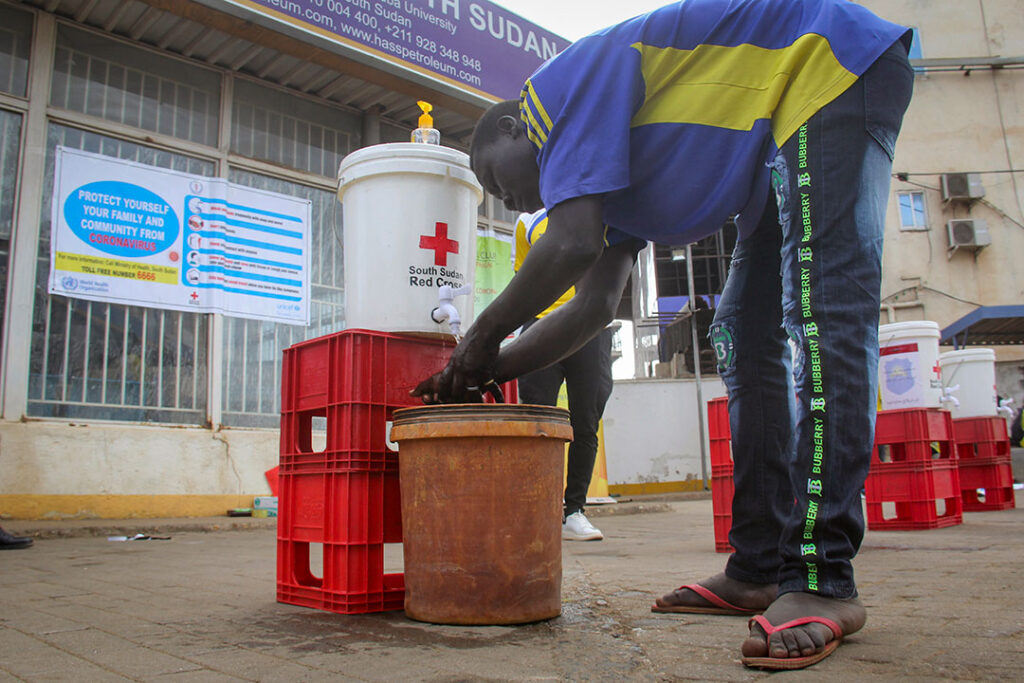ADF STAFF
The United States government has pledged $13.1 million to mitigate the spread of the COVID-19 outbreak in South Sudan, which had recorded five cases of the novel coronavirus as of April 29.
On April 16, the U.S. announced a $5.1 million commitment on top of $8 million announced on March 27.
“The United States is the world’s leader in health and humanitarian assistance, and we have long provided this assistance to the people of South Sudan,” Tom Hushek, U.S. ambassador to South Sudan, said in a statement. “We were on the front lines in the fight against Ebola; we support countries in their battles against HIV/AIDS, tuberculosis, and malaria; and we are providing the resources and expertise to lead the global response to COVID-19.”
The U.S. donations provided new life-saving support by coordinating with the government of South Sudan, international humanitarian partners and other organizations to identify priority response areas.
These funds, it added, included $11.5 million in USAID International Disaster Assistance and $1.6 million in humanitarian assistance to support COVID-19 response efforts in South Sudan through the Department of State’s Bureau of Population, Refugees, and Migration.
Through this assistance, USAID will support case management to bolster clinical care while minimizing the risk of transmission to others. It will also support infection prevention and control in health care facilities and the expansion of water, sanitation and hygiene programs, among other programs.
“In addition to these new funds and activities, USAID’s programs in South Sudan are implementing best practices to protect their staff, beneficiaries and the general population, including through promoting proper hand-washing, maintaining safe distance, and conducting work remotely when and where possible,” USAID said.
The U.S. aid is timely. In a country where more than 5 million people rely on food aid to survive, South Sudan was facing adverse economic effects from the spread of COVID-19, including a slowdown in the importation of basic commodities. The country’s already dire food security situation was in even greater peril.
The price of a 50 kilogram bag of maize, for example, increased by 36% in March, according to a report by the United Nations.
The removal of nonessential staffers from the workforce and the closure of nonessential businesses, combined with the lingering impact of devastating 2019 floods, a desert locust invasion and rapidly rising food prices, likely will increase food insecurity and humanitarian needs, the U.N. report said.
Before the COVID-19 pandemic, 6.5 million people — 55% of the population — were expected to face severe food insecurity at the height of the May-to-July annual hunger season.
The U.N. said South Sudan’s urban population likely was more vulnerable because of its dependence on markets for food and a higher population density, which exposes people to greater risk of disease transmission.
Officials distributed double rations of food as a transmission-reduction measure in high-risk locations such as camps for refugees and internally displaced people, and areas already facing severe levels of food insecurity.

